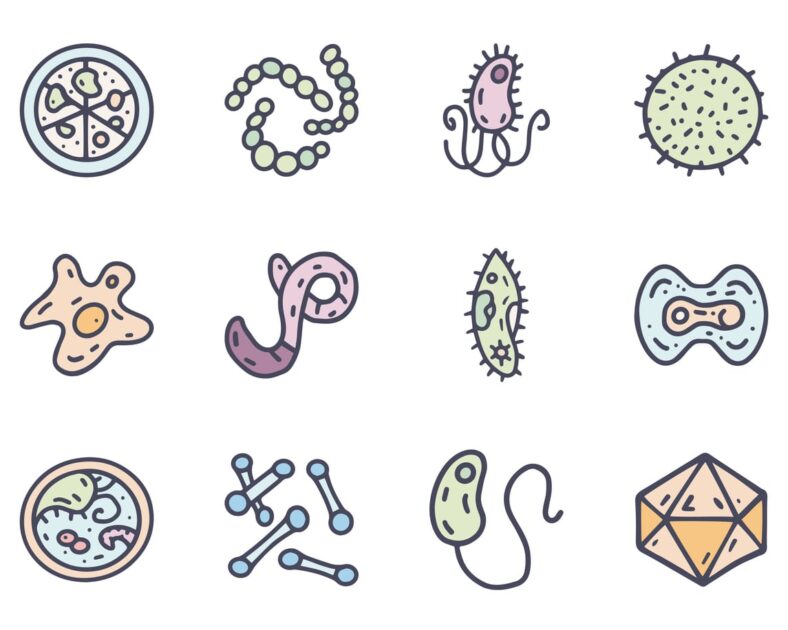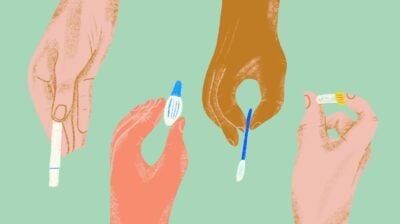Shigella: Symptoms, treatment and prevention
Shigella is caused by bacteria from poo entering the mouth

Shigella is a bacteria that can cause severe stomach upset. The shigella bug is passed on through infected faeces (poo). This can happen through contaminated food or sexual activity.
How do you get shigella?
You can come into contact with shigella through sexual activity that may involve contact with faeces (poo). It is picked up by the bacteria getting into the mouth during sex or via unwashed hands.
This can include:
Only a very small amount of the bacteria is needed to cause infection. Shigella infection can last for up to a month. Sexually transmitted shigella is possible for any sexually active person, especially those engaging in sex acts that involve the anus. Shigella can be seen in gay and bi men and men who have sex with men.
How can I prevent myself from getting shigella?
You can lower your risk of getting shigella during sex by:
- Washing hands (buttocks, groin and penis too, ideally) or showering before and after sex
- Avoiding licking the skin on the buttocks, around the backside or groin, as they may carry the bacteria
- Changing condoms between anal and oral sex
- Using latex gloves for fingering or fisting
- Using a barrier for rimming (such as a square of latex)
- Not sharing sex toys or douching equipment
What are the symptoms of shigella?
Symptoms often develop around one to three days after (sexual) contact and last up to a week.
Symptoms may include:
- Diarrhoea – this can be severe and last for a few days
- Feeling sick (nausea) and vomiting
- Stomach cramps
- Feeling feverish
- In serious cases, diarrhoea that can contain blood and/or mucus
How can I be tested for shigella?
Shigella is usually diagnosed by sending a stool (poo) sample to the laboratory for testing. If you suspect you have shigella, you should attend your GP or sexual health clinic which can organise this test.
If you picked up shigella sexually, it is recommended that you get an STI check-up, including for chlamydia, gonorrhoea, syphilis, hepatitis B and HIV.
What about my partner?
You should inform your partner about your infection. It is also recommended that your partner/s have routine tests for all STIs, including chlamydia, gonorrhoea, syphilis, hepatitis B and HIV. If your partner has symptoms of shigella infection, they should visit a GP or sexual health clinic as soon as possible.
How is shigella treated?
Some forms of shigella do not require any treatment, but the more severe forms will require treatment with antibiotics. Diarrhoea caused by shigella usually goes away within 5 to 7 days. People with mild infections will generally get better with fluids and rest.
Antibiotics are usually used to help reduce the spread of shigella to someone else and for more severe cases. Some types of shigella can be difficult to treat and sometimes people need to be admitted to the hospital for treatment.
Can I infect my partner or others?
You may be infectious for up to a month, so it is important to wash your hands with soap and warm water after using the toilet and before touching food.
You can also stop the spread of infection by
- Washing your hands after using the bathroom
- Not sharing towels with anyone else
- Avoid using health spas, jacuzzis, hot tubs or swimming pools
If you work in the food industry, healthcare or childcare settings, you need to stay out of work while you have symptoms. You cannot go back to work until a health professional says so.
When can I have sex again?
If you have diarrhoea, stomach cramps or fever, avoid sex with another person until you get the all-clear from your healthcare practitioner.
You may be asked to return for a repeat test to make sure the infection has gone. If you are asked to return for a repeat test, it is recommended that you take a break from sex until you get the repeat test results to confirm that you have cleared the infection.
Looking after your mental health after an STI diagnosis
If you are diagnosed with an STI, you might feel a mixture of emotions. Unfortunately, there is still stigma in our society surrounding STIs that can cause some people to feel shame about having one. However, like any other healthcare diagnosis, you are not to blame for your STI and have not done anything “wrong”. Being diagnosed with an STI can have a negative impact on your mental health and wellbeing and if you don’t feel comfortable telling friends or family about it, you might feel isolated and alone. If you have found out you have an STI and you’re finding it difficult to cope, there are things you can do to support your mental health.
- Remember that STIs are common and lots of people have one at some point in their life, even though they aren’t talked about a lot
- Take time out to do something you enjoy and practice self-care
- Reach out for mental health support if you need it. If you don’t feel comfortable talking to a friend or family member, our 24/7 anonymous text service, 50808, can help
- Be patient with yourself and allow yourself to feel your emotions. It’s ok to be upset when you find out you need healthcare treatment. It’s important to take the time you need to adjust
Feeling overwhelmed and want to talk to someone?
- Get anonymous support 24/7 with our text message support service
- Connect with a trained volunteer who will listen to you, and help you to move forward feeling better
- Whatsapp us now or free-text SPUNOUT to 50808 to begin.
- Find out more about our text message support service
If you are a customer of the 48 or An Post network or cannot get through using the ‘50808’ short code please text HELLO to 086 1800 280 (standard message rates may apply). Some smaller networks do not support short codes like ‘50808’.






